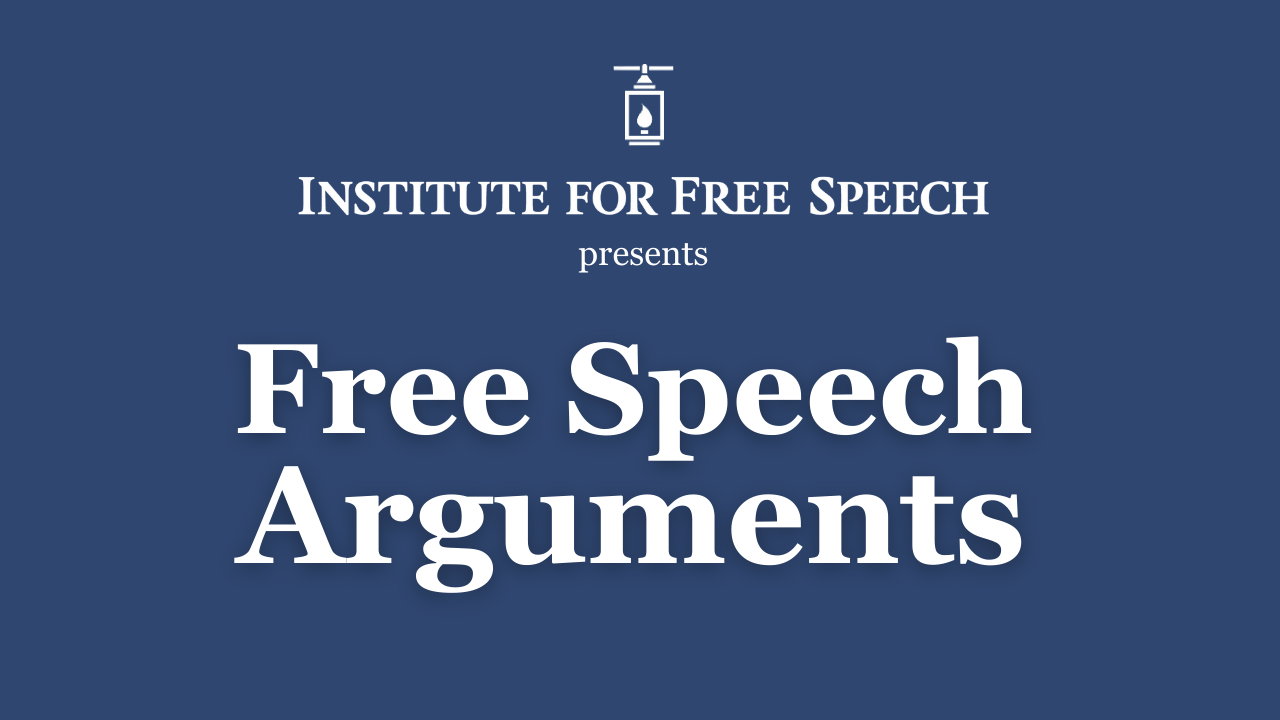Episode 36: Center for Arizona Policy, Inc., et al. v. Arizona Secretary of State, et al.
Center for Arizona Policy, et al. v. Arizona Secretary of State, et al., argued before the Arizona Supreme Court on September 11, 2025. Argued by Andrew Gould (on behalf of Center for Arizona Policy, Inc., et al.) and Eric Fraser and Alexander Samuels on behalf of Arizona.
Background of the case [from the Institute for Free Speech amicus brief]:
Proposition 211 imposes sweeping disclosure rules unlike anything seen before. On every metric, the law expands on its predecessors. It covers more people, more speech, for longer time. Where other laws narrow, Proposition 211 widens. It is a drastic evolution in compelled disclosure—and one that should not survive constitutional scrutiny.
But what kind of scrutiny even applies? The First Amendment requires what’s called “exacting scrutiny.” See Ams. for Prosperity Found. v. Bonta, 594 U.S. 595, 607 (2021) (“AFPF”). It’s a high bar in theory—part of the increasingly convoluted “tiers of scrutiny” the federal courts have adopted. Under this standard, a law’s constitutionality often boils down to “if, in the judge’s view, the law is sufficiently reasonable or important.” United States v. Rahimi, 602 U.S. 680, 731 (2024) (Kavanaugh, J., concurring). Yet that “kind of balancing approach to constitutional interpretation” is inconsistent with “what judges as umpires should strive to do.” Id. (Kavanaugh, J., concurring).
Fortunately, “the Arizona Constitution provides broader protections for free speech than the First Amendment.” Brush & Nib Studios, LC v. Phoenix, 247 Ariz. 269, 281 (Ariz. 2019). Those protections do not depend on courts weighing the value of amorphous governmental interests. Rather, Arizona’s Constitution guarantees that “[e]very person may freely speak, write, and publish on all subjects.” Ariz. Const. art. II, § 6. And this Court has taken a “more literal application” of that language, mandating that courts “avoid, where possible, attempts to erode [these rights] by balancing them against . . . governmental interests,” Mountain States Tel. & Tel. Co. v. Ariz. Corp. Comm’n, 160 Ariz. 350, 357 (Ariz. 1989).
That means laws like Proposition 211 do not live or die based on the freewheeling balancing that tests like “exacting scrutiny” rely on. If the law burdens the right to speak freely, it violates the Arizona Constitution unless the state can show it prevents abuse. See Plaintiffs’ Supp. Br. at 5–6. And since no one disputes that Proposition 211’s expansive disclosure rules deter protected speech, and no one argues that it targets abusive speech, it cannot survive scrutiny.
Statement of the issues [from the Arizona Supreme Court docket listing]:
- Is the Voters’ Right to Know Act facially unconstitutional under the Ariz. Constitution?
- If not, did the court of appeals properly dismiss Plaintiffs-Appellants’ as-applied challenge?
Resources:
- Proposition 211 Language
- Institute for Free Speech Amicus Brief
- Institute for Free Speech Press Release
Listen to the argument here:
The Institute for Free Speech promotes and defends the political speech rights to freely speak, assemble, publish, and petition the government guaranteed by the First Amendment. If you’re enjoying the Free Speech Arguments podcast, please subscribe and leave a review on your preferred podcast platform.














